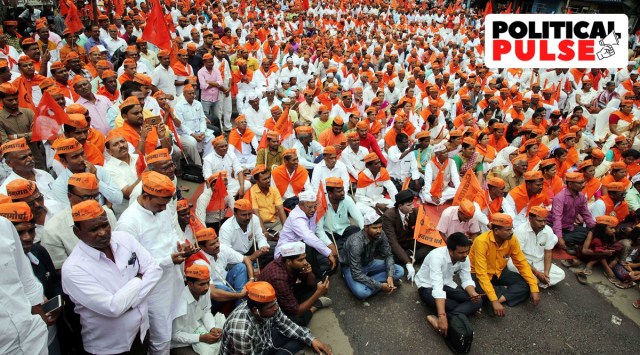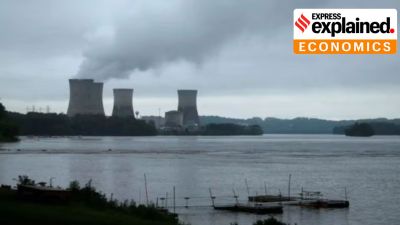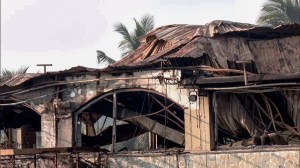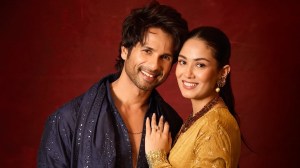Bigger Picture: Karnataka local polls, OBC rider, and the ghost of a 2015 census
Polls for 198 seats in the Bengaluru city corporation, 1,083 zila panchayat seats in 30 districts, and 3,903 seats in 175 taluk panchayats in Karnataka have been due for over a year.
 In April 2015, then Congress CM Siddaramaiah had commissioned a socio-economic caste census at a cost of Rs 133 crore to assess the status of various caste groups in Karnataka. (Express file photo by Ashish Kale)
In April 2015, then Congress CM Siddaramaiah had commissioned a socio-economic caste census at a cost of Rs 133 crore to assess the status of various caste groups in Karnataka. (Express file photo by Ashish Kale)Data from an unpublished caste census that was carried out by the Karnataka government when the Congress was in power in the state between 2013-2018 has assumed significance in the state in the light of a recent Supreme Court order mandating political reservations for Other Backward Castes in the country only on the basis of empirical data on numbers and backwardness of caste groups.
Polls for 198 seats in the Bengaluru city corporation, 1,083 zila panchayat seats in 30 districts, and 3,903 seats in 175 taluk panchayats in Karnataka have been due for over a year.
🗞️ Subscribe Now: Get Express Premium to access the best Election reporting and analysis 🗞️
The 2015 survey
In April 2015, then Congress CM Siddaramaiah had commissioned a socio-economic caste census at a cost of Rs 133 crore to assess the status of various caste groups in Karnataka. The census was led by H Kantharaj, the chairman of the Karnataka Backward Classes Commission at the time. It was the first such exercise after 84 years.
A leaked version of the report indicated that dominant and politically powerful castes in the state like the Lingayats and Vokkaligas constitute, respectively, only 9.8% of the population (instead of a general estimate of 17%) and 8.2% (instead of 15%) of the six crore population.
The politics
The Siddaramiah government did not release the report’s findings, submitted in 2017, reportedly under pressure from Congress leaders and ministers who feared an adverse effect in the 2018 Assembly polls. The BJP had demanded the release of the report at the time, as well as when the JD(S)-Congress coalition government took over following the polls.
Now, the Congress is demanding that the Kantharaj committee be cited by the Karnataka government in the Supreme Court, saying it meets the requirement of empirical data for reservation in local polls. Asserting that OBCs have been denied political representation for decades, Siddaramaiah, who belongs to the OBC Kuruba community, said recently: “The BJP government should use the report to argue before the Supreme Court and ensure social justice for the backward classes. There is no need for a separate survey.”
OBCs have emerged as a key support group for the BJP in Karnataka. “Those elected in local polls tend to be the ones who drive support for a party at the grass-root level,” noted a government source.
In polls to city and town municipal councils held in December 2021, prior to the Supreme Court’s January 19, 2022, order saying polls could be held only with empirical data, the Congress had won 501 of the 1,884 wards in 58 municipalities, compared to the BJP’s 433.
Earlier, polls were held for city corporations in Belagavi, Dakshina Kannada, Kalburgi, Dharwad, Davangere and Mysuru in the last two years, where the BJP fared well.
“We are holding discussions with the chairman of the backward classes commission, Jayaprakash Hegde. In a few days, we are going to sit with legal experts,” Rural Development Minister K S Eshwarappa, also an OBC leader, said last week.
The Supreme Court 2010 order
Beginning with a 2010 Constitution Bench judgment, where the validity of political reservations for OBCs under Articles 243-D(6) and 243-T(6) under the Constitution was challenged, the Supreme Court has emphasised the need for OBC quota in elections to be backed by empirical data – unlike reservation for OBCs, along with SCs, STs, in education and employment. The 2010 judgment ruled that “identification” of “backward classes” under Articles 243-D(6) and 243-T(6) should be distinct from the identification of SEBCs (Socially and Economically Backward Castes) for the purpose of Article 15(4) and that of backward classes for Article 16(4). Both these Articles entitle governments to make laws for uplift of backward classes.
“In the absence of updated empirical data, it is well nigh impossible for courts to decide whether reservations in favour of OBC groups are proportionate or not,” the Supreme Court said.
The Maharashtra case
While the Supreme Court 2010 order was not acted upon by states, in 2019-2020, Maharashtra’s move to reserve over 50% seats in local polls was disputed in court. In March 2021, a three-judge Supreme Court Bench set out a three-step rule to empirically establish the need for OBC quota – 1) a state commission must “conduct contemporaneous rigorous empirical inquiry into the nature and implications of the backwardness qua local bodies, within the state”; 2) specify the proportion of reservation required to be provisioned local body wise in light of recommendations of the commission; and 3) total “reservation (must) not exceed the aggregate of 50% of the seats”.
Maharashtra response
The Shiv Sena-NCP-Congress government issued an ordinance to get around the Supreme Court order and reserved 27% of local poll seats for OBCs. The matter again reached the Supreme Court, and on December 6, 2021, it ruled out holding of local elections without empirical data. On December 15, it ordered that all seats declared OBC by the state government be declared general for local polls. On Janury 19, 2022, it said all states must follow the triple test condition laid down by the court in the March 2021 order for OBC reservations in elections.
The Karnataka case
In Karnataka, 33% of seats in local bodies have been reserved for OBCs and 18% for SC/STs, which might now be under a cloud.
The terms of several local bodies in the state ended over a year ago, including of the Bruhat Bengaluru Mahanagara Palike (BBMP) in September 2020 and of 1,098 zila panchayat members and 3,903 taluk panchayat members in March 2021.
The BBMP polls were initially delayed on account of the BJP government moving to increase the number of seats in the city corporation from 198 to 243 through delimitation. The state has now cited the Supreme Court order seeking empirical data as a block to holding polls.
- 01
- 02
- 03
- 04
- 05































